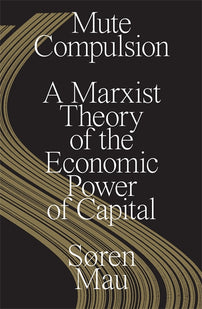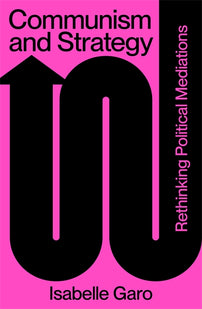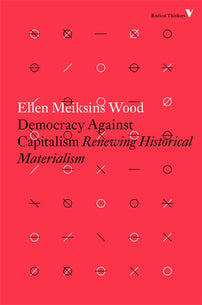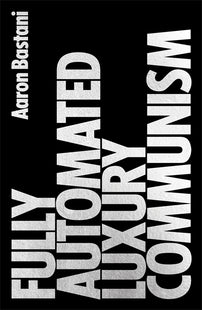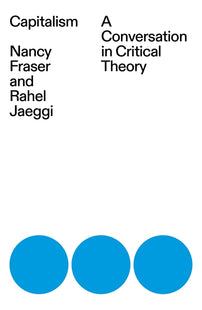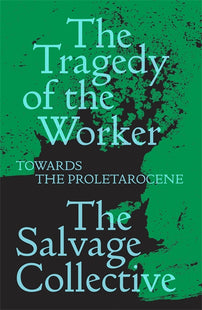Communism is Freedom
Ideas about a future society won't in themselves bring us to a better future, but ideas can function as points of orientation for collective struggle. What should the communism we fight for look like?

Few are still defending capitalism. Most have recognized its absurdity, and critiques of the existing system are usually preaching to the choir, because the ideological conflict is no longer between those who defend capitalism and those who reject it, but rather between hope and resignation. As anti-capitalists, our task today is perhaps not so much to convince others that capitalism is destructive, but rather to strengthen the belief in the actual possibility of organizing our shared life in an entirely different and better way.
Contrary to what many intellectuals are led by their vanity to believe, strengthening such a belief is generally not a question of having the right ideas, arguments, and analyses. It’s rather the result of having concrete experiences of being able to act and make changes together with other people. If millions of people in the early decades of the 20th century considered socialism to be a real possibility within reach, it wasn’t because socialist intellectuals had finally managed to sufficiently sharpen their arguments, but because the worker’s movement in its heyday had created political organizations that were capable of giving people a lived experience of accomplishing concrete improvements in their quality of life by means of collective action. Beautiful utopias don’t matter if they’re not accompanied by a confidence in the ability of collective action to change the course of history, and such a confidence can’t be conjured up by good arguments: political communities is the inevitable basis for ideas about another and better society.
That doesn’t mean, however, that ideas don’t matter. Ideas about the good society can never in themselves create historical changes, but that doesn’t prevent them from being a part of such a process. In the right political and historical circumstances, ideas can function as points of orientation, which can help us make decisions about how to act. That’s why it makes sense to have discussions about what a free society could look like. And that’s something that anti-capitalists have neglected for way too long.
Fortunately, there are signs that things are changing. More and more people are thinking about what a postcapitalist society could look like, and discussions about ‘degrowth communism’, ‘half-earth socialism’, ‘fully automated luxury communism’, ‘post-scarcity’, ‘salvage communism’ and ‘the world commune’ are proliferating. Last year, M.E. O’Brien and Eman Abdelhadi published a vision for a communist New York City, Everything for Everyone: An Oral History of the New York Commune, 2052-2072, and authors such as Aaron Benanav, Jasper Bernes and Cordelia Belton are all currently writing books about communism that will hopefully soon be published and will surely constitute important contributions to the contemporary discussions about the economic and political structures of our communist future.
Communism is Democracy
Under capitalism, a society’s economic activities are organized according to one single principle: profit. Most decisions about what and how much to produce, who should produce it, where and how it should be produced, and who should receive the yields of production are left to profit-seeking private actors. Communism doesn’t consist in replacing this principle with another economic principle, but rather in enabling democratic decision-making about how our shared activities and resources should be organized.
Humans are social beings insofar as they live in groups and are dependent on each other for their survival, and they are natural beings insofar as they are dependent on an ecosystem that belongs to no one and therefore to everyone. An individual’s access to their own material conditions of existence is always mediated by social relations, which is another way of saying that it is always a political issue, and for this reason, freedom can never merely consist in the absence of the power of the community over the individual, but must also consist in the possibility on the part of individuals to participate in the political processes that shape their relationships to their conditions of existence. Put differently, humans are by nature political animals, whose freedom can only be realized and maintained through collective self-determination—or what we call democracy. Communism is the aspiration to take this democratic ideal as seriously as possible and is, as such, a vision of freedom. Democracy must, as Ellen Meiksins Wood, put it, “be reconceived not simply as a political category but as an economic one,[… i.e.] as an economic regulator, the driving mechanism of the economy”.
Not a Lifestyle
Communism doesn’t imply a particular idea of the good life. Communism isn’t a lifestyle or a fantasy about making every facet of an individual’s life the object of political decision-making; it isn’t a romantic community cult or a dream of communes and potlucks and DIY culture. Communism is the effort to establish institutions that can ensure the highest possible degree of individual freedom and democratic control over those aspects of human life that are, necessarily, shared by the members of a society. Communism is just as much for introverts and hermits as it is for enthusiastic collectivists.
Communism relies on the acknowledgement that there are aspects of our life that are ontologically collective, and which therefore cannot be left to individuals. The best example is land: originally it belongs to no one, and thus to everyone, which is why decisions about what to do with it have to be democratic decisions. The communization of our shared conditions of existence isn’t based on a moral claim about the common or the collective as somehow finer or better or higher than the individual, but on the simple insight that the reproduction of the human species is inherently social, and that the total democratization of the shared aspects of this reproduction is the only reasonable consequence of that fact. All aspects of life that can be taken care of individually, however, will as a rule remain individual issues.
The fundamental condition of communism is that the basic conditions of the life of society are brought under democratic control. The state would be abolished, all private companies would be dissolved, and all privately owned means of production—land, buildings, machines, etc.—as well as the wealth of the upper class would be expropriated. At the same time, new institutions would need to be built, which would not only take over many of the functions we usually associate with the state today, but would also manage and oversee the economy.
What is at stake here is thus a wide-ranging and comprehensive expansion of democracy. Instead of leaving economic decisions to market forces, we would be the ones deciding what it is we want.
[book-strip index="2"]
The Commune
Let’s call the basic unit of the institutional structure of communism the commune. Everyone would have to choose a home commune, but everyone would be able to live in whatever commune they would choose. Communes would vary in size, depending on their revolutionary prehistory as well their particular geographic, cultural, and historical context. Some communes would be heavily urbanized and count their inhabitants—let’s call them communards—in the millions, while communes in sparsely populated areas or desolated islands could have very few inhabitants, at least to begin with. Communism will gradually diminish the divide between city and countryside, but to begin with, it will be necessary to build communism in a world shaped by centuries of intense capitalist urbanization, which means that heavily urbanized areas such as Tokyo or Shanghai would have to be transformed into several large urban communes.
Ideally, each commune would control everything necessary to cover the needs of its communards, from land, water, energy, and other natural resources to labor power, technology, research, and education. Decisions should generally be made by—or as close as possible to—those affected by them to ensure a high degree of autonomy and minimize the risk of undemocratic centralization of power.
In practice, this is an ideal impossible to realize, partly because one of the basic conditions of all communes is a stable biosphere, and that can only be guaranteed through some sort of global regulation of the use of our common natural resources. Moreover, there would be obvious advantages to cooperation between communes. Two neighboring communes might, for example, decide to pool their resources around infrastructure or education. Such agreements between communes would likely result in some sort of pyramid structure consisting of political institutions with decision-making power as well as forums for coordination, knowledge-sharing, and reciprocal aid.
Under communism, referendums would be more common, but not all decisions could be made this way, so there would also need to be representative assemblies, whose seats could be filled through a combination of elections and lotteries, which would counteract the formation of a political elite and the market-imitating professionalization of politics.
Perhaps the most important task of the commune would be passing and executing the economic plans that would replace market mechanisms. It might look something like this: all communards and production facilities would regularly report their needs and wants, and based on publicly available data on these needs and wants, as well as on available resources and production capacity, different political organizations would propose drafts for economic plans outlining production targets for a two-year period. This process would be repeated several times in conjunction with public meetings and hearings and various forms of public debates to ensure a maximum level of democratic participation. Eventually, a final plan would be passed by referendum. Decisions regarding the exact details of the implementation would be made by representative assemblies in collaboration with production units.
The Public Sector
Under communism, the economy would be divided into two sectors. Aaron Benanav borrows from Marx and calls them the realm of necessity and the realm of freedom. We could also call them the public sector and the private sector. In the public sector—or the realm of necessity—“we would share out” as Benanav puts it, “the labors necessary for our collective reproduction, dividing up responsibilities while taking into account individual abilities and proclivities.” This would include, among other things, agriculture, healthcare, housing, education, research, childcare, elderly care, public transportation, infrastructure, media, consumer goods, and what we today call capital goods.
The two-year plans described above can be thought of as a list of everything to be produced by the public sector, which can then be converted to a certain amount of labor hours required to reach these targets. These hours would, ideally, be distributed evenly among all adult communards fit for work, and specific tasks would be allocated according to each individual’s abilities and needs. Thus, everyone might, for example, be required to work twenty hours a week.
Under capitalism, a significant part of the labor most necessary to the maintenance of life is rendered invisible or privatized as unpaid domestic labor. The capitalist separation of paid and unpaid labor, of production and reproduction, which is an important source of gendered oppression, would disappear under communism, where reproductive labor would count as a part of the commune’s shared workload.
In order to be sure the needs of the commune align with the needs and capabilities of the communards, various incentives could be used—a particularly unpopular task might, for instance, count for double the hours or come with special privileges, such as access to more attractive housing or more attractive working conditions. More popular tasks could be assigned by lottery or bundled with unpopular ones. A similar strategy could be used to ensure that the commune’s education system is set up to meet the projected needs of the commune to avoid shortages of specialized labor. In that way, it would be possible to create a division of labor in which most tasks would be equally attractive, and in which certain groups of people wouldn’t be forced to take on the worst tasks—as they currently are under capitalism.
Everything produced in the public sector would be distributed without the use of money. Housing, healthcare, medicine, education, childcare, public transportation, and meals in public cafeterias would be free of charge and available to all, without control. Housing would be assigned through lottery and waitlists. The basic idea underlying public libraries could be extended to things such as tools, bicycles, music instruments, art, and clothing, as the Danish politician Pelle Dragsted has recently suggested.
Consumer goods associated with varying individual preferences (I like to drink vermouth, you might prefer sherry) could be ‘purchased’ with digital coupons. All communards would receive coupons each week to use for services and products available from public warehouses. This wouldn’t be money, since the coupons would be personal and expire after a certain period (let’s say three months, for example), which means that they can’t be transferred and accumulated.
[book-strip index="3"]
The Private Sector
The commune would produce and distribute everything necessary for all communards to live a good, long, healthy, and stable life. It would be responsible for building and maintaining housing, electricity, roads, sanitation, railroads, the internet; it would produce your food and your medicine, your clothes, your phone, your furniture, your television, and your books; it would take care of you, your children, the elderly, and the sick.
But the commune wouldn’t be able to meet all the communards’ needs. Under capitalism, it is the effective demand of individuals that determine what gets produced: ‘the social power becomes the private power of private persons’, as Marx put it in Capital. Under communism, decisions about what to produce would instead be taken democratically, which means that the commune might decide not to produce certain products even though some communards would like it to. In such cases, communards would as a rule be free to produce these things themselves in their free time.
Products that the commune has opted to not include in its economic plan could be produced by the private sector, or in the realm of freedom—that is, the part of a society’s economy that the communards would manage in their free time. Here, everyone would produce and trade as they wish, keeping within certain democratically determined limits (no production or exchange of humans, weapons, or hard drugs, for example). The communards would also be able to create institutions and technologies that could ease and regulate exchange—for example, creating some sort of money.
Imagine, for example, that we have democratically decided that in order to reduce working time for everyone, the commune will only produce bicycles in one color. If a communard desperately wants a red bicycle, they will be able to pick up an unpainted bicycle from a public warehouse (for free, of course, like everything else) and paint it themselves. Or maybe they will take it to a bicycle workshop that a group of communards have established in their freetime, and have them paint it in exchange for something else. As this example hopefully makes clear, ‘the private sector’ is basically just a name for those productive activities that communards engage in in their free time.
The line between the two sectors would be drawn democratically by the commune. Each time, it’s a matter of asking: Is this a need we agree to take on collective responsibility for, or is this something we leave to communards to take care of themselves? Energy, buildings, and raw materials required for production outside of the public sector would be granted by the commune, either for free or in exchange for products or services.
But isn’t this private sector merely another form of capitalism? The answer is no, because the commune would always guarantee all communards unconditioned access to life necessities, which means that it would always be possible to withdraw completely from the private sector. Land, housing, and labor power would never become commodities. Money would exist purely as an means of exchange and couldn’t be used to give certain people power over others.
Life under Communism
For centuries, capitalism has prioritized profit over nature, and as a result, we are now left with what the communist author Eskil Halberg has called a fixer-upper of a planet. We need what The Salvage Collective, in their 2021 manifesto, The Tragedy of the Worker, calls a salvage communism, meaning that a significant part of the commune’s resources would need to be dedicated to ecological restoration. The democratization of our common resources would make it possible to regulate the use of natural resources, and thereby to secure the conditions of existence for future generations of humans and the other living creatures we share this earth with.
The idea of of communism I’ve described here is as dissimilar from the authoritarian state socialism of the 20th century as it is from capitalism. So why insist on calling it “communism” at all, a word so strongly associated with Stalinist dictatorship? For the same reason that we shouldn’t give up the concept of “democracy” because of the German Democratic Republic or the Democratic People’s Republic of North Korea. Some words are worth fighting for, and instead of abandoning the concept of communism to the typically bourgeois falsification of history, we should insist on continuing the long, unbroken tradition that—in explicit opposition to authoritarian state socialism—has been fighting for a free society under the banner of communism for over more than 150 years.
So, what would life under communism look like? Above all, a communist society would be free, classless, and diverse. Communism would give everyone the freedom to shape their own lives as they wish. Communism would be synonymous with more democratic decision-making, fewer working hours, better housing, better food, and a stable biosphere, as well as with something capitalism can never offer—economic security. Under capitalism, you never know when layoffs, inflation, or an economic crisis will rip the rug out from under you; under communism, no one would ever need to fear being cut off from access to basic life necessities. A communist life will, in other words, be free, secure, and good—for all.
This is based on an article which originally ran in Information and was translated from the Danish by Sherilyn Nicolette Hellberg
Image via U.S. Geological Survey
[book-strip index="4"]
